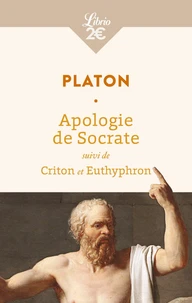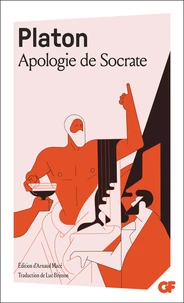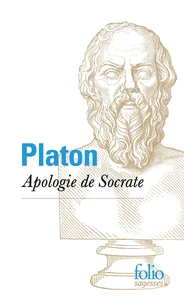
Comme pour nombre d'auteurs grecs la chronologie de Platon n'est pas très précise ; on situe sa naissance dans les années 428/427 avant Jésus Christ et son décès vers 348/347 mais l'important c'est l'apport de cet auteur à la philosophie occidentale. Issu d'une famille de l'aristocratie athénienne, Platon était promis à une carrière politique brillante, mais sa rencontre avec Socrate et la découverte de la pensée de ce dernier vont en décider autrement. En 387 il fonde l'Académie, école philosophique dans laquelle il va enseigner pendant une quarantaine d'années, se consacrant à la transmission écrite de la pensée de son maître. Ainsi "Apologie de Socrate", "Le procès de Socrate", "Criton" ou le "Phédon", relatent-ils, presque uniquement sous forme de dialogues, les derniers jours et le procès du philosophe. Platon prône l'idée de "cité juste" toujours d'actualité dans la pensée politique contemporaine.





















